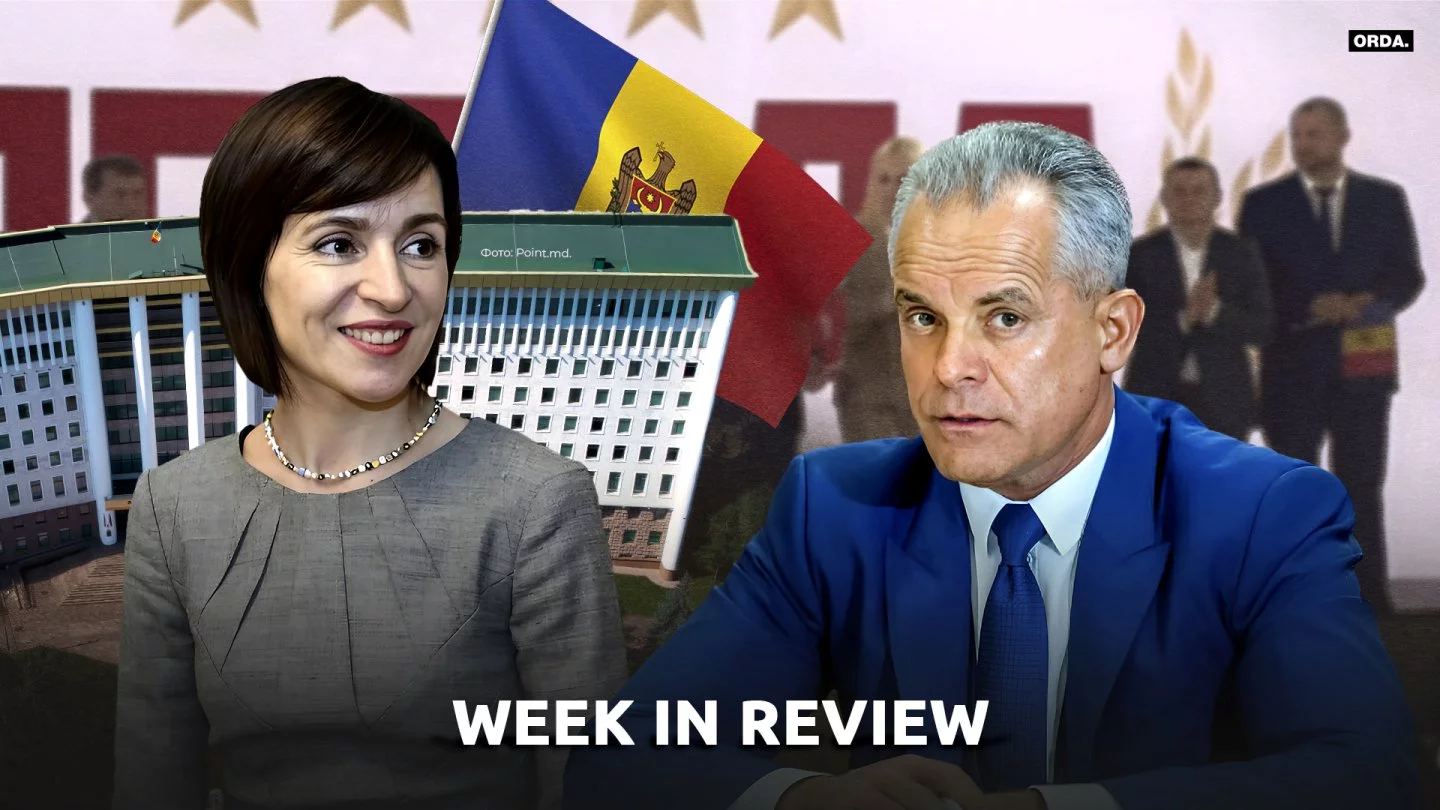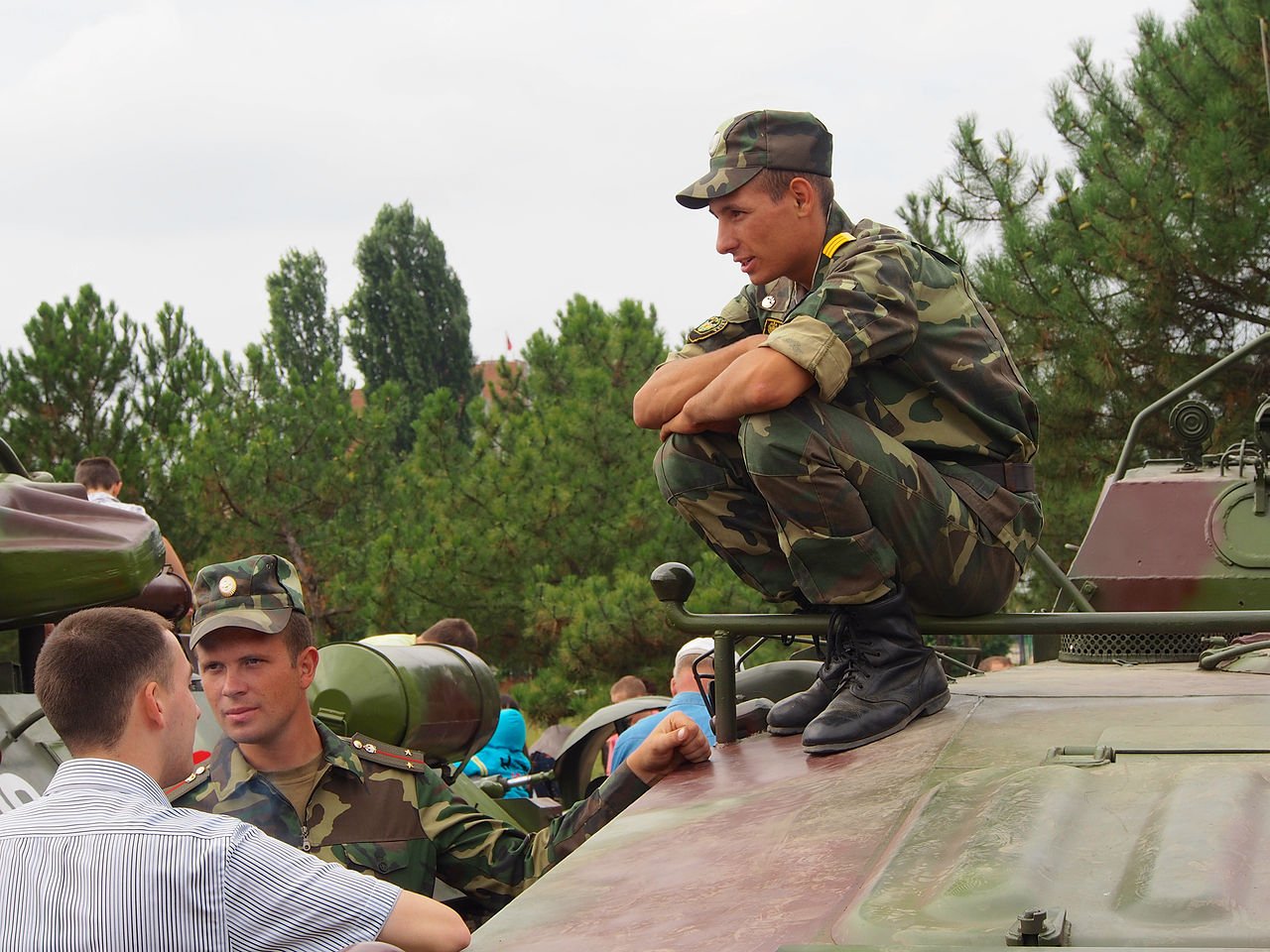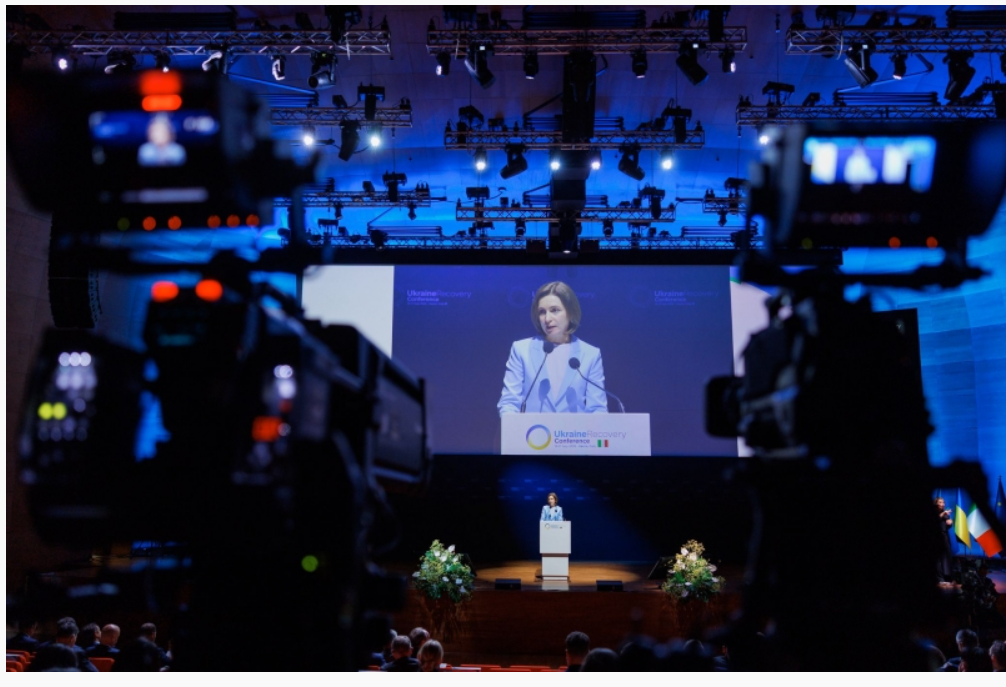Week In Review: Moldova In Focus

Orda has put together a brief synopsis of last week's news. This week's edition focuses on Moldova.
Blocked But United?
Moldova’s pro-Russian parties — including the Socialist Party led by Igor Dodon — announced they are uniting to contest the September 28 parliamentary elections. The alliance aims to challenge the ruling pro-European government.
Not long before, Moldova’s Central Election Commission denied registration to the pro-Russian bloc Victory, linked to fugitive oligarch Ilan Șor. Authorities cited election law violations, including undisclosed foreign financing and holding party congresses abroad with foreign logistical support.
Ilan Șor — convicted in absentia for masterminding a $1 billion banking fraud and under EU and U.S. sanctions — leads the Victory bloc. On July 21, reports emerged that former Moldovan Democratic Party leader Vladimir Plahotniuc and another Moldovan citizen were detained in Greece.
According to PulsMedia.MD, citing sources, the second detainee is former Democratic Party MP Constantin Țuțu.
Plahotniuc had been placed on an international wanted list due to his alleged role as one of the main beneficiaries of the “Moldovan Laundromat” (also known as the “Russian Laundromat”) — the largest money laundering scheme in the post-Soviet space, involving banks in Russia, Moldova, and the Baltic states.
Moldova is reportedly seeking his extradition.
Russian authorities also opened a related case, naming Plahotniuc as a figure of interest and Moldovan billionaire Veaceslav Platon as the main defendant. Russian prosecutors argue the scheme constituted theft rather than laundering and claim that falsified documents were used to bypass currency control mechanisms.
On July 25, Russia sentenced Platon in absentia to 24 years in a high-security penal colony. No verdict has yet been announced in Plahotniuc’s case.
On July 19, 2025, Moldovan prosecutors requested a nine-year prison sentence for Gagauzia Governor Evghenia Guțul in a case involving illegal campaign financing by the outlawed Șor party. They also requested a five-year ban on holding public office. Her trial remains ongoing.
Guțul was arrested in March by Moldova’s anti-corruption authorities at Chișinău Airport and charged with multiple violations related to campaign financing.
Guțul had previously appealed to Vladimir Putin and Recep Tayyip Erdoğan for intervention.
Also in March, Moldova’s Foreign Ministry expelled three Russian diplomats following the escape of convicted MP Alexander Nesterovsky. According to Moldovan intelligence, Nesterovsky fled by entering the Russian embassy in Chișinău and was transported the next day to Transnistria in a Russian diplomatic vehicle.
Transnistria is a breakaway territory internationally recognized as Moldovan.
Destabilization
The European Council imposed sanctions on seven individuals and three entities accused of efforts to destabilize Moldova. Most are linked to Ilan Şor and schemes involving illicit funding of political movements.
Against that backdrop, Moldovan Prime Minister Dorin Recean told the Financial Times that Russia plans to deploy up to 10,000 troops in Transnistria as part of a strategy to install a Moscow-friendly government in Moldova. He asserted that Moscow is attempting to influence the September 2025 elections through disinformation and illegal financial flows.

Other operations, such as Russia's Matryoshka, have also been in full force, attempting to disseminate false information, including the current Moldovan president "coercing" support.
Elections Approaching
Moldova is scheduled to hold parliamentary elections on September 28, 2025, a closely watched vote viewed as pivotal for its future direction toward EU integration.
However, the 2024 presidential elections and nationwide referendum on EU accession indicate a narrow margin of support. The former ultimately became a run-off between President Maia Sandu and former prosecutor-general Alexandr Stoianoglo.
Since early 2025, Transnistria has faced a severe gas crisis after Russia halted supplies, prompting economic emergency measures and partial shutdowns, while Moldova and the EU have offered limited relief that was rejected by Tiraspol.

Transnistria sought a deal with a Hungarian supplier financed by Russia, with the crisis and economic emergency extending into June. Reportedly, energy availability remains insufficient to cover industrial consumption.
Russia could be seeking to exploit this situation to foster a pro-Russian parliamentary victory. Rising prices have amplified the appeal of populist messaging, which appears increasingly resonant with voters affected by economic hardship.
By default, this messaging also resonates in Transnistria; several pro-Russian parties, including the PSRM, advocate enhanced regional autonomy that recognizes its institutions while keeping it under formal Moldovan sovereignty — potentially creating another point of leverage.
Pro-European forces stand to mobilize efforts and also adapt, especially considering regional concerns about Russian influence in elections, such as those raised during Romania’s recent presidential vote, which ultimately ended with a pro-European candidate's victory.
Recent polls indicate that the current president's Party of Action and Solidarity (PAS) has 27.4% of voting intentions, compared to 10.4% for the pro-Russian opposition Socialists and 6.2% for the Victory bloc.
Although PAS is the clear front-runner, a decisive victory is anything but certain, potentially tilting in favor of a united front consisting of the above pro-Russian parties.
PAS would thereby be forced to form a coalition as well, though other pro-European parties are polling below or barely at the necessary 5% threshold to enter parliament.
Such an outcome could necessitate concessions on PAS's part. The Moldovan diaspora could prove to be its saving grace come voting time, though.
Latest news
- Tokayev Sends Support Messages to Gulf Leaders Amid Regional Escalation
- Kazakhstan Bans Its Airlines From Flying Over Several Middle East Countries
- Astana Strengthens Security Measures Amid Escalation Around Iran
- Tokayev Meets U.S. Ambassador Stufft, Discusses Board of Peace Cooperation
- Mangystau Launches AI-Assisted School Monitoring to Prevent Teen Suicidal Behavior
- Kazakhstan to Supply UK With Critical Minerals
- AI Faculties for Educators to Open in Kazakhstan: What Other Changes Are Coming to the Education Sector
- There Are Medals — But Not Enough Ice: What’s Happening to Figure Skating in Kazakhstan
- Is Kazakhstan’s Nuclear Power Plant Project at Risk After New UK Sanctions? Rosatom Responds
- Prosecutor General’s Office Suspends Extradition of Navalny Ex-Staffer Detained in Almaty
- Former EBRD Executive Jürgen Rigterink Elected as New Independent Director on Bank RBK’s Board of Directors
- Kazakhstan Near Bottom of Retirement Comfort Ranking
- Kazakhstan to Open New International Flights Across Asia, the Middle East and Europe
- Foreign Experts Paid 47 Times More Than Local Scientists in Kazakhstan
- Almaty Utility Services Clear Streets for Fourth Time After Continuous Snowfall
- The Deputy Calls for Checks on Kazakh Officials Named in Epstein Files
- Su-30SM Fighter Jet Crashes Near Karaganda
- School Smartphone Restrictions May Expand Beyond the Classroom
- US warns Ukraine against strikes affecting CPC oil exports
- Kazakhstan and Austria Agree on Readmission of Illegal Migrants

